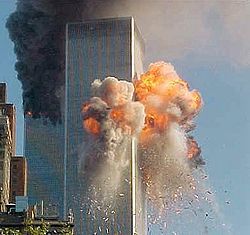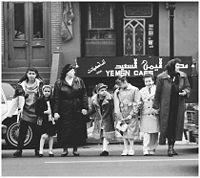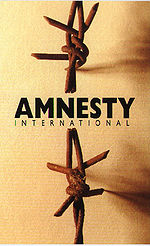From The Peopling of New York City
Contents |
Overview of 9/11
The events that occurred on September 11th 2001 will forever be ingrained in the minds of New Yorkers. On the morning of September 11, 2001, Al-Qaeda-affiliated hijackers flew two 767 jets into the complex, one into each tower, in a coordinated suicide attack. After burning for 56 minutes, the South Tower collapsed, followed a half-hour later by the North Tower, with the attacks on the World Trade Center resulting in 2,750 deaths.
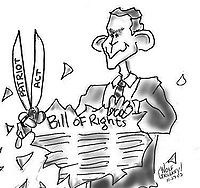
Source: <http://informedvoters.files.wordpress.com/2007/09/bush_patriot_act.jpg>
On this day, the collapse of the twin towers created a patriotic upheaval against the Middle Eastern countries. People wanted to know who was responsible for this crime. In the weeks that passed by, residents with connections to the alleged terrorist mastermind Osama Bin Laden, were ousted and taken by the government. Because of this unrest, citizens were cautious of Arab- Americans and Muslims, two groups virtually unknown prior to the attacks.
Fueled by the fear of another attack, the Bush Administration soon declared a War on Terrorism. The patriot act was one product of the attacks. An acronym standing for Providing Appropriate Tools Required to Intercept and Obstruct Terrorism, the Patriot Act allows the government to “deter and punish terrorist acts in the United States and around the world, to enhance law enforcement investigatory tools, and other purposes.” [1] Though these actions stemmed from a great crime done to this country, the implications were negative for many Arab-American citizens and immigrants alike.
Effects on Immigration
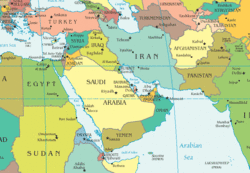
Source: <http://www.mytravelguide.com/g/maps/Middle-East-map.gif>
Today, Arabs in the city are part of a larger Muslim community from all over the globe. The majority of these countries include: Bangladesh, India, Afghanistan and Iran, from the Balkans, from West Africa (notably Ghana, Senegal, Niger and Sierra Leone) and even from the Americas, principally Guyana and Trinidad-Tobago.
According to Louis Abdulatif Cristillo of the Muslims in New York Project at Columbia University, over one-third of the 600,000 Muslims in New York are Arab
Arab Muslims, who have immigrated in greater number since the mid 1960s, were once a nearly invisible minority compared to Christian Arabs. But now the Muslims have become increasingly engaged in the public life of the city. They live beyond the traditional enclaves of lower Manhattan, Brooklyn Heights, and South Brooklyn, venturing out into the other boroughs to live, open businesses and become part of mixed neighborhoods.
Immigration of the Arab community in the wake of the attacks was limited in number because of the scare. Many Arabs fond themselves waiting more than a year to get visas, even if they had family here. Many immigrants who aspired to attain the American Dream found their dreams being crushed at the root itself. Most of them only came just to find a better place to practice their religion and a place where job opportunities were abundant. “It’s just the work, like I told you. In Morocco, it is harder to find a job,” says Anass Habibi, Moroccan JFK employee.
When finally arriving in America they found that because of their name and heritage, it was hard for them to have job opportunities. “The only problem that I had…I have been working in JFK…It took me a while to get my ID, like two or three months, just to get my ID,” Anass said. To go on without prejudice or without being discriminated Arabs and Muslims would have to slowly let go of their heritage.
Effects on Jobs and Businesses
The fear of the Arabs led to decline in Arab owned small business. Many stores were looted immediately after the collapse of the towers. Businesses concentrated in West Brooklyn and Astoria owned by Arabs were shut down because of the lack of customers.
According to the 2002 Yearbook of Immigration Statistics published by the Department of Homeland Security, before September 11th, there were over 331,000 people with a H-1B visa; however, after the attacks this number dropped to 197,500 (a decrease of over 40 percent!). The decline is attributed to slack demand for high-skilled workers because of the economic slowdown that followed the September 11 terrorist attacks. “Computer-related visas, which have always accounted for the majority of H-1B visas, fell from 58 percent of all such visas granted in FY2001 to 38 percent in FY2002. Barring any legislative changes, the current cap of 195,000 visas will revert back to 65,000 in FY2004.” [2]
There has been a tremendous expansion of mosques since the late 19701s, with close to 130 mosques now in the city. Muslim Arabs can purchase meat in dozens of butcher shops, send their children to 14 private schools, have litigated for the right to wear religious clothing or beards in the workplace, and have successfully lobbied the city to suspend parking rules for major Islamic holidays.
The Museum of the City of New York currently has a series of programs connected to "A Community of Many Worlds: Arab Americans in New York." The exhibition, originally scheduled for November, has been delayed until March, 2002, in light of recent events.
Treatment of Arabs and Muslims Post 9/11
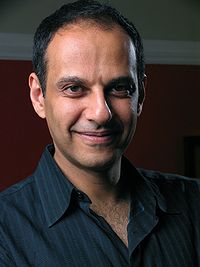
Source: <http://www.alwanforthearts.org/img/upload/8y16uf1u3j2bzgji.jpg>
In the years following the World trade center attacks, Arabs were treated differently in many factors. Although a decade has almost past, the stereotypes and standing of Arabs within our society is not to what it should be.. Moustafa Bayoumi, author of “How does it feel to be a problem?” addresses this issue. He realized that even if prejudice continued to persist in our society, the American creed of fairness was now supposed to mean that we ought to be judged not by our religion, gender, color, or country of origin but simply by the content of our individual characters. Therefore, stereotyping all Arabs for the 9/11 attacks was unforgivable.
The terrorist attacks, the wars in Afghanistan and Iraq, and the explosion of political violence around the world have put that dream in jeopardy for American Arabs and Muslims. In the eyes of some Americans, they have become collectively known as dangerous outsiders.
The attacks not only led to hardship in terms of opportunities, but also led to stereotypes about the Arab community. All Arabs were seen as Muslim, when the fact was that most Arabs the immigrated were actually Christian. Women were seen as repressed individuals who had no power, because of their head clothes, and conservative clothing. Because of these stereotypes, many Arabs tried to “Americanize” themselves in different ways. Many changed their names in order to get fair treatment in the workplace. Many also went away from their traditional practices in order to fit in (not growing out a beard, not wearing a headscarf).
Bias crimes against Arabs, Muslims, and those assumed to be of such descent soared up 1700 percent in the first six months after September 11 and have never returned to their pre-2001 levels. A USA Today poll from 2006 shows that 39 percent of Americans admit to holding prejudice against Muslims and believe that all Muslims- U.S. citizens included should carry special IDs.
Detention Treatments Post 9/11
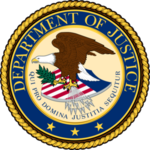
Source: <http://image3.examiner.com/images/blog/EXID14309/images/091211173940US_DeptOfJustice_Seal.png>
Hundred of Arabs, Muslims and other South Asian immigrants were detained in the months following the attacks. “Those detained after the attacks suffered civil rights violations, including physical and verbal abuse and limited access to legal counsel, according to a report issued June 2 by Inspector General Glenn A. Fine of the Department of Justice.” [3] The report focuses on two detention facilities that housed the majority of the immigrants, most of them of Arab and South Asian descent, detained in the 11-month period immediately following the attacks. Although all of the detainees had violated the terms of their visas, the report finds that no distinction was made between immigration violators and terrorist suspects. In addition, the report faults the FBI and the Department of Justice's immigration arm for poor communication, lack of clear priorities, and understaffing.
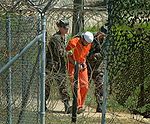
Source: <http://www.onepennysheet.com/wp-content/uploads/2009/12/Gitmo_detainee.jpg>
Prior to September 11, immigration authorities could hold people for only twenty-four hours before charging or releasing them, but by September 20, 2001, Attorney General John Ashcroft had changed the rule to forty-eight hours, with an emergency exception for an unspecified "reasonable" amount of time.
Moustafa Bayoumi's book "How Does It Feel To Be A Problem," counts the stories of various different Arabs affected by the 9/11 attacks. The first is the story of teenager, Rasha, who was taken, unlawfully, to a Metropolitan Detention Center for over 90 days. The average length of detention for post-September 11 detainees was eighty days.
By November 5, 2001, the Justice Department announced 1.182 arrested, then stopped providing information. The inspector general's report acknowledges 762 people detained on immigration charges between September 11, 2001 and August 6, 2002, as a direct result of the terrorist investigation.
In May 2002, Amnesty International released a report that charged the U.S. government with violating "certain basic rights guaranteed under international law. These include the right to human treatment, as well as rights which are essential to protection from arbitrary detention, such as the right of anyone deprived of their liberty to be in formed of the reasons for the detention; to be able to challenge the lawfulness of the detention; to have prompt access to and assistance from a lawyer; and to the presumption of innocence."
“In the aftermath of the attacks, the bush administration was pushed to make sure theses attacks would never happen again. The Bush administration announced a program called the "Absconder Apprehension Initiative," that went after over three hundred thousand immigrants living in United States.” [4]
By 2003 the Office of the Inspector General (OIG) of the Justice Department completed its own investigation and, in a report of more than two hundred pages, reiterated many of the concerns held by Amnesty International.
References
1. ^ USA. "USA PATRIOT Act". Financial Crimes Enforcement Network. 04/27/2010 <http://www.fincen.gov/statutes_regs/patriot/index.html>
2. ^http://www.migrationinformation.org/USFocus/display.cfm?ID=145
3. http://www.migrationinformation.org/USFocus/display.cfm?ID=145
4. Bayoumi, Moustafa. How Does It Feel To Be A Problem. New York City: Penguin Group, 2008.
Related Wiki Pages
Home Page
Overview of Arab American Identity
Reasons for Arab Immigration
Effects of the Economy on Arab Immigration
